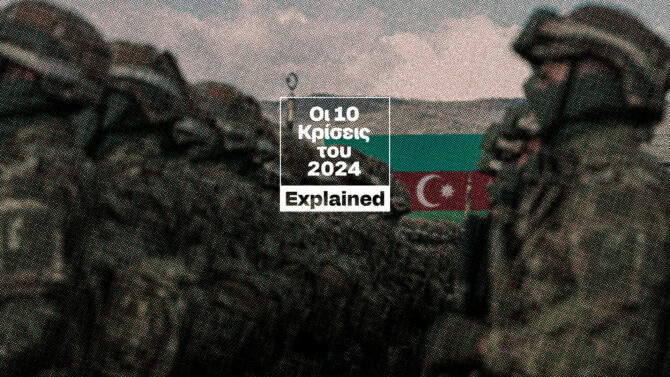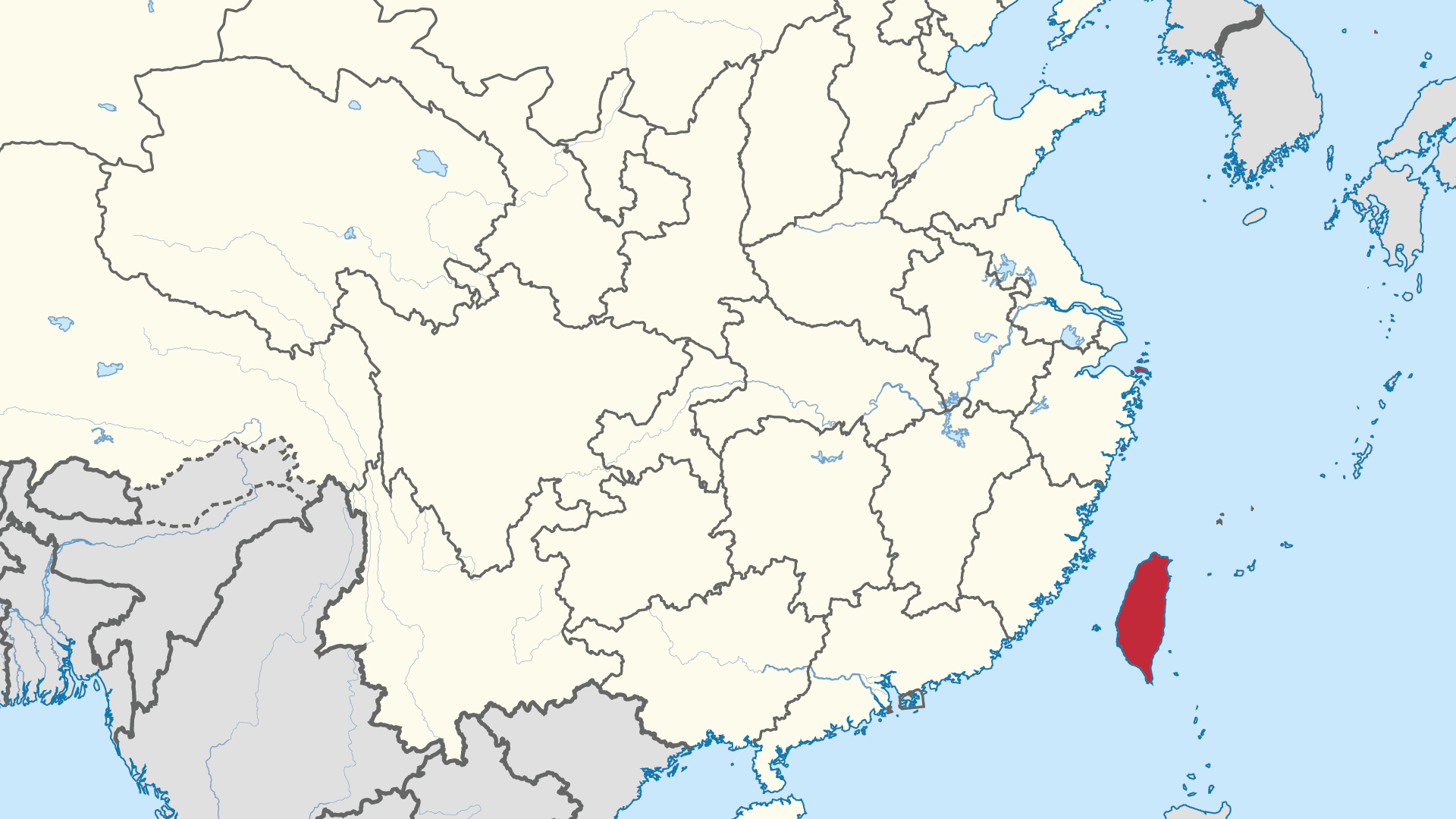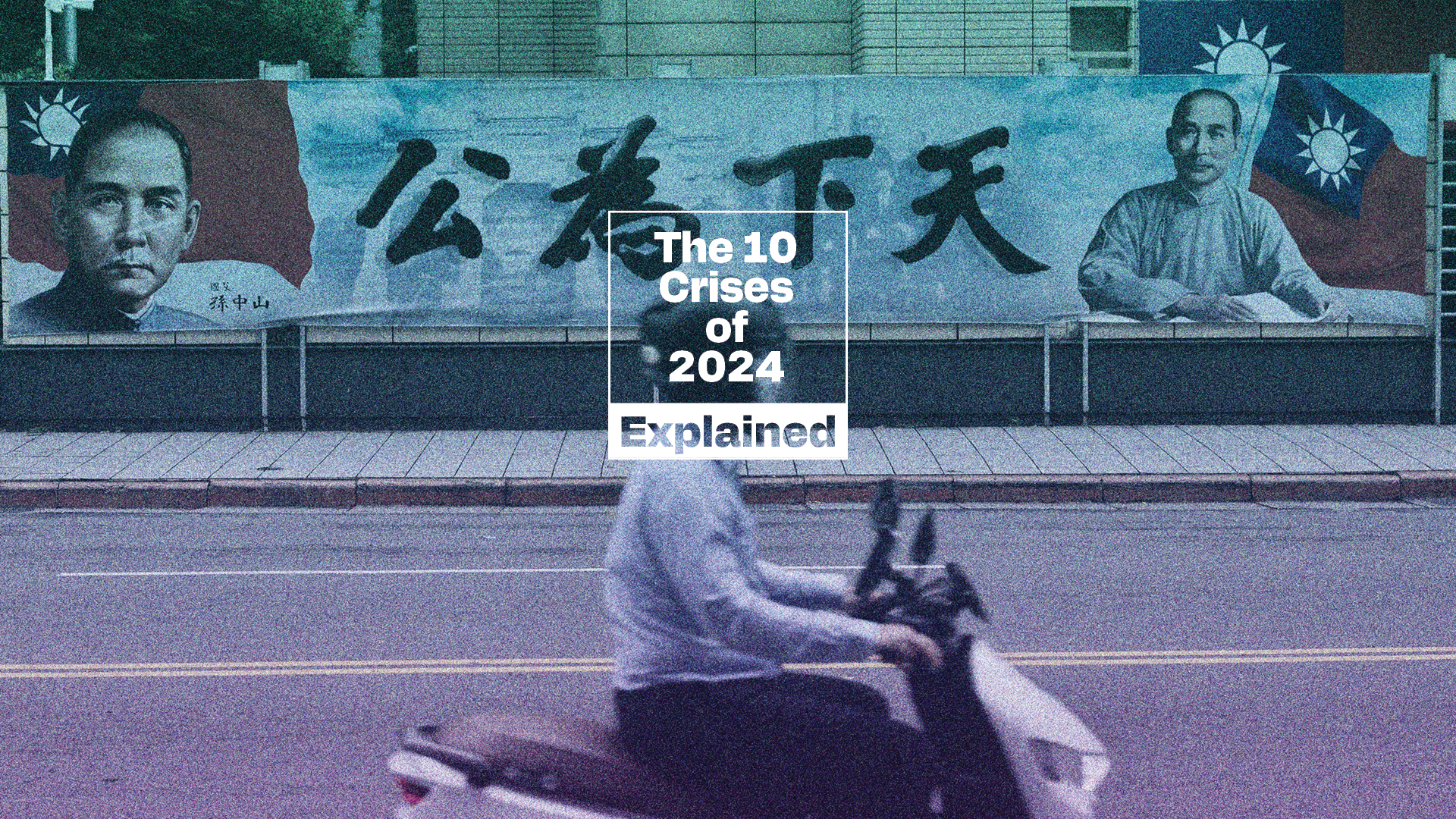On 20 May 2024, Lai Ching-te, a man whom China has labelled a “dangerous separatist,” was inaugurated as the new president of Taiwan. Beijing regards the island of Taiwan as its own territory and responded to the inauguration with major military drills in the region three days later. The government in Taipei considers the island as a separate sovereign state and, along with its strongest ally, the US, has called on China to deescalate tensions. In the eighth installment of the series “10 Crises of 2024,” iMEdD examines the case of Taiwan, a Western Pacific island that analysts warn could trigger a war between the US and China.
7. Nagorno-Karabakh: Are Armenia and Azerbaijan heading for another conflict?

The 10 crises of 2024 – Explained: 7.
Where is Taiwan?
This island country is located in East Asia, at the intersection of the East and South China Seas and the Pacific Ocean. The country, which is officially called the Republic of China, lies about 160 kilometres off the coast of China – officially known as the People’s Republic of China.

What is the history of the country?
Taiwan came under Japanese control after the First Sino-Japanese War in 1895. After World War II, China experienced a civil war between the Kuomintang nationalists and the communists of the Communist Party of China. When the latter prevailed in 1949, the Kuomintang nationalists retreated to the island of Taiwan. They did not recognise the newly established People’s Republic of China on the mainland and regarded themselves as the legitimate government of China, maintaining the name Republic of China, which remains Taiwan’s official name to this day.
In 1949, the Kuomitang party and its leader, Chiang Kai-shek, imposed a military dictatorship on the island, which lasted until 1987. Since then, Taiwan has undergone democratic reforms, with the first free elections held in 1996.
What is China’s position?
Officially, China considers the island of Taiwan to be part of its territory. It has stated its intention to unite the island with mainland China by peaceful means, but has not ruled out the use of force if necessary. This policy, known as “One China,” maintains that there is only one sovereign state under the name “China” – the People’s Republic of China – and that Taiwan is not a separate state but a part of it.
China’s stance is backed by actions. Since 2016, there has been an increase in Chinese military exercises and simulations in the Taiwan Strait, as well as flights of fighter aircraft into Taiwan’s airspace.
In the most recent escalation, on May 23, 2024, China conducted military exercises and mock attacks around Taiwan, involving land, air and naval forces. The drills, codenamed “Joint Sword-2024A”, were, according to Chinese authorities, a response to the island’s “separatist tendencies”, occurring just three days after the inauguration of the new Taiwanese President Lai Ching-te. Reuters described these drills as “war games.” As part of the drills, the island of Taiwan was encircled by Chinese forces, and as the military authorities in Beijing said, it was a test of their ability to “seize power” over the island.
What is the role of the US?
The US is considered Taiwan’s most crucial ally. Since 1979, however, it has not recognised Taiwan as a separate state but rather as part of the People’s Republic of China, considering the government in Beijing as the sole legitimate authority for all of China. The US maintains official diplomatic relations with Beijing, but not with Taipei. Nevertheless, they are legally bound to provide military support to the island and maintain the capacity to defend it, a pledge they have declared they will uphold should China initiate an attack.
Could Taiwan trigger a US-China war?
Beijing has repeatedly cautioned Washington against maintaining contacts and providing military equipment to Taiwan. The latter, according to data from the Stockholm International Peace Research Institute (SIPRI), increased its military expenditure to $16.6 billion in 2023, marking an 11% increase from the previous year.
Taiwan’s geographical position renders it a valuable asset to major powers. The island is of great strategic importance to the US, as it is located very close to key Washington allies in the region, including Japan, South Korea and the Philippines. Moreover, the Taiwan Strait is considered a vital artery for global trade, with data indicating that the island is responsible for 60% of the world’s microchip production, a crucial element in the manufacturing process of mobile phones and lithium batteries.
All of the above, combined with rising US-China competition, the election of a new president in Taipei, and the upcoming November US elections, seem to intensify the situation. According to an October 2023 analysis by the International Crisis Group, while a Chinese invasion of Taiwan is unlikely in the near future, the risk of a smaller conflict is increasing. US Secretary of State Anthony Blinken, in a press conference last June, had explained Taiwan’s importance in the international economic and trade arena, emphasising that any crisis in the region would have “dramatic consequences for virtually every country around the world”.
Read all the Explainer texts of the series “The 10 Crises of 2024” here.
